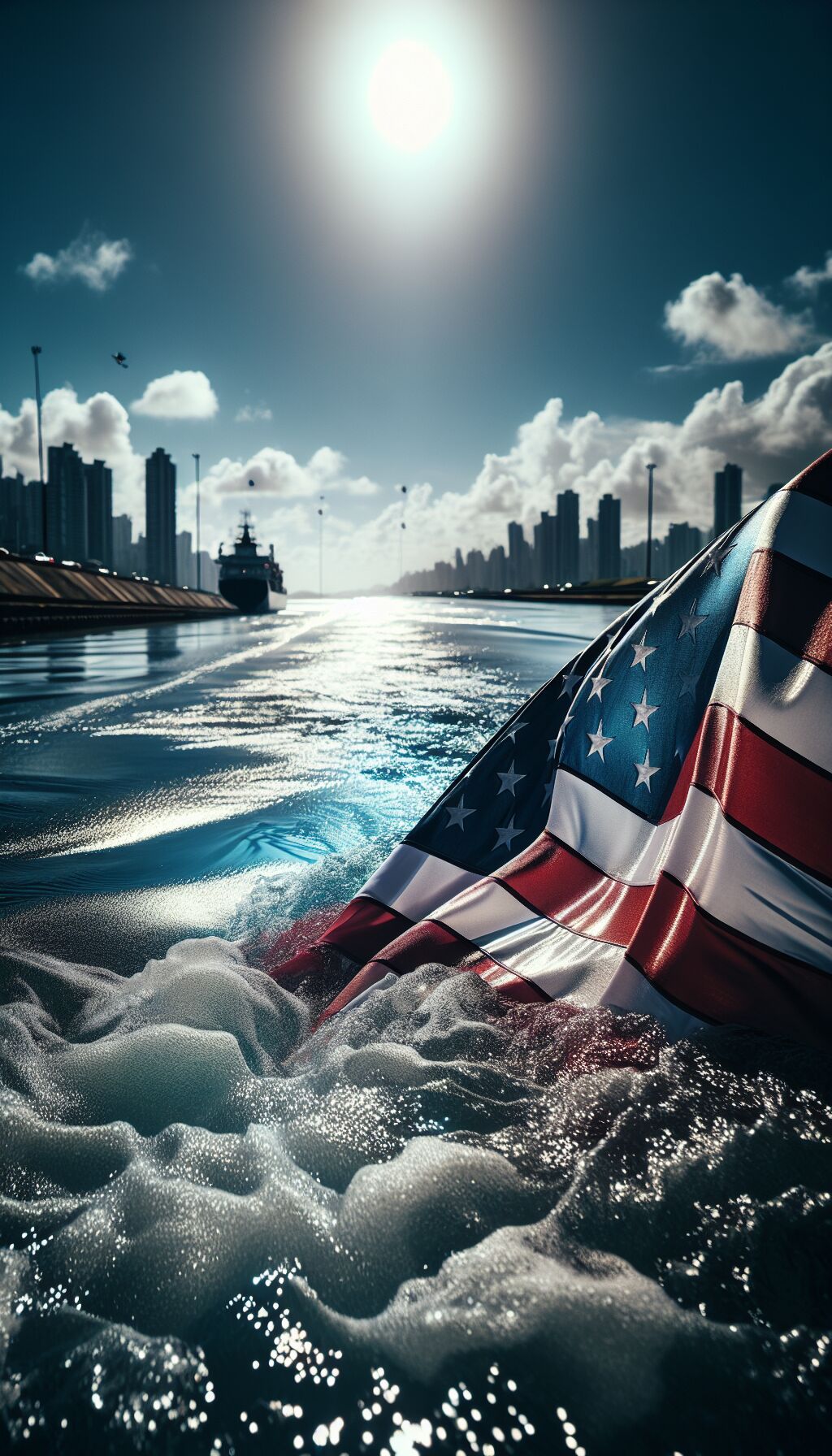Trump’s Territorial Ambitions and Political Disruptions
In a series of bold and controversial statements, former President Donald Trump has reiterated his view that it is “an absolute necessity” for the United States to acquire Greenland. His assertive stance comes as he also suggests regaining control of the Panama Canal if shipping fees remain exorbitant. These remarks have sent ripples through both domestic and international political waters.
A Quest for Greenland and the Panama Canal
Trump initially proposed the purchase of Greenland during his first term, a move that was met with resistance and a notable diplomatic crisis with Denmark, which currently controls the island under a home rule system. This time, Trump’s renewed call for ownership indicates his unwavering ambition to expand U.S. territory, raising questions about the legitimacy and consequences of such demands.
Furthermore, Trump’s position on the Panama Canal is equally contentious. Historically, the United States built the canal in the early 20th century, but sovereignty was surrendered to Panama under a treaty, a decision that Panamanian President Jose Raul Mulino has firmly stated is non-negotiable. He maintains that “every square meter of the Panama Canal and its adjacent zone is Panama’s and will continue to be so.” Despite this, Trump recently shared an AI-generated image depicting an American flag over the waterway, underscoring his disregard for established agreements.
Internal Party Tensions and Threats
Trump’s rhetoric does not stop at territorial acquisitions. He has made it clear that any Republican who opposes his authority—especially concerning the government shutdown bill—could face serious political consequences, including primary challenges. This statement reveals his growing influence within a party that has been increasingly divided over ideological lines. Recent votes show that over three dozen conservative Republicans defied his wishes, raising questions about the loyalty of congressional members to the former president’s bombastic style.
For instance, Speaker of the House Mike Johnson—whose leadership may be in jeopardy due to similar dilemmas faced by former Speaker Kevin McCarthy—saw the government shutdown bill transform into a “Christmas tree monstrosity,” laden with various demands and negotiations. Trump’s resistance to such bipartisan efforts emphasizes his primary role as a disruptor, turning established legislative processes upside down.
Shaping the News Agenda
Notably, Trump’s grandstanding often extends beyond mere territorial declarations; it serves to dominate the news cycle. He has admitted that sometimes his incendiary comments are designed purely to provoke media reactions. For Trump, even negative coverage is beneficial as it keeps him relevant in a saturated news environment. The media’s focus on his demands creates a narrative and distracts from other pressing issues, solidifying his role at the forefront of American politics.
This strategy was evident when he pushed for aggressive tariffs against Canada and Mexico. His positioning may often appear outrageous, but outside the political sphere, many citizens may remain oblivious to the intricacies of such conflicts affecting their lives. The fact that the government did not shut down also lessens the perceived repercussions of Trump’s failed pursuits, such as his previous effort to buy Greenland.
Limits of Influence
However, Trump’s ability to shape the political landscape is restricted. The defiance displayed by a significant faction of Republican legislators on critical issues like the debt ceiling indicates the limits of his sway. Some party members, including Trump loyalists like Representative Nancy Mace, have their own reasons for voting against him, emphasizing a calculated approach to governance rather than blind allegiance.
The Republican Party currently holds a slim majority in the House, and with this precarious position, members are forced to balance party loyalty against the responsibilities of legislative governance. This climate poses a dilemma for Democrats, who must weigh the risks of negotiation against the possibility of becoming targets for Trump’s reported reprisals.
Broader Implications of Trump’s Remarks
The implications of Trump’s comments about Greenland and the Panama Canal extend beyond mere rhetoric. These statements encapsulate a broader philosophy that prioritizes aggressive nationalism and undermines international agreements, challenging long-standing diplomatic norms. His comments serve as a reminder of how political aspirations can blend with historical narratives, often at the expense of global relations.
Additional News Highlights
Meanwhile, other significant stories are unfolding. A House Ethics report implicated Republican Representative Matt Gaetz in sexual misconduct and drug use. The report details allegations of improper conduct and showcases the complexities of ethical standards within Congress.
Moreover, actress Blake Lively has recently revealed an alarming incident involving harassment during filming, exposing the uncomfortable realities faced by many in the entertainment industry.
Also making headlines, billionaire Jeff Bezos challenged recent reports about a rumored extravagant wedding, urging caution regarding the authenticity of media narratives.
Conclusion
As Trump navigates his second presidential bid, these scenarios highlight the ongoing tensions within the Republican Party and the broader national discourse. His assertive stance on issues like Greenland and the Panama Canal may captivate attention, but the reality remains that shaping political landscapes involves both strategy and cooperation. How Trump’s ambitions will pan out in the face of legislative pushback and shifting party dynamics remains to be seen.










